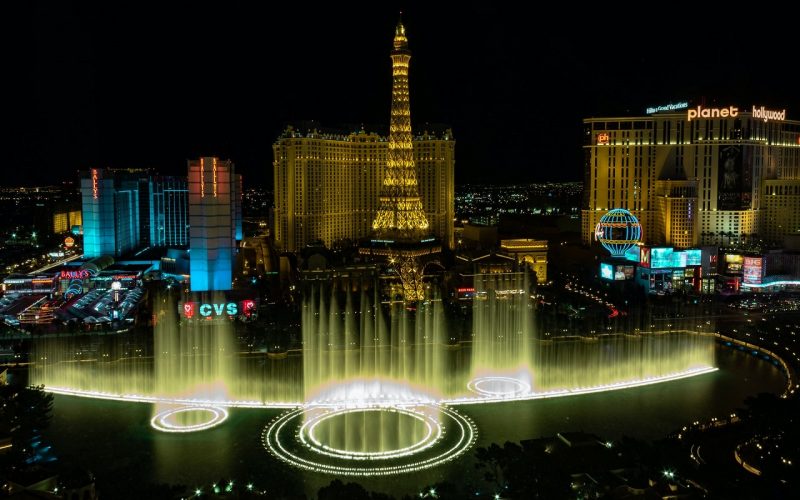Nevada relies on the Colorado River for at least 85% of its water supply. However, during the last few years, many cities across the state, including Las Vegas, have been heavily pumping groundwater. As a result, at the end of 2021 and early 2022, many springs have dried up, complicating the facilitation of the millions of tourists visiting the City of Lights every year. Maybe the running of legal online gambling sites is part of the solution, or perhaps the city council must find alternatives to allow the community to evolve and adapt to the new reality!
How Important is Groundwater for Las Vegas?
Groundwater is one of the major freshwater sources for Las Vegas. However, the extraction has increased several times in recent years, reaching 86 million cubic meters. This annual rate exceeds by more than three times the natural recharge potential. This fact, together with growing fears of groundwater contamination, threatens the city’s water supply. The quality of the water beneath the surface is endangered by pipe leaks, drains, septic systems, and neglect of basic processes. During the hot season (June to September), around a quarter of the daily supply comes from groundwater wells.
Most of the shallow aquifer lies within 50 feet under the surface in the Las Vegas Valley. In previous decades the flow was more than sufficient, fueled by snowmelt in the Rocky Mountains. However, the rapidly increased population of Las Vegas and huge crowds of gamblers every year caused an overpumping, which can lead to irreversible consequences. Water levels in the reservoirs of Lake Powell and Lake Mead are already under the midline.
Water Demand Increasing
But apart from the issues with groundwater mining, the people of Las Vegas face another problem – the increase in the water needs! The city and industry have always been blamed for wasting this precious resource for entertaining the numerous gamblers and tourists swarming its hotels and casinos every week. Some might say that the main reason is the neverending demographic growth, and they would be right! However, the constant drive to increase GDP per capita is the more likely cause!
Anyway, both reasons should be irrelevant given the fact that Las Vegas is located in the middle of the Mojave desert! A unique one indeed, with an underground, heavily supplied by the Colorado River, but still a desert! Although the industry doesn’t agree with the accusations of wasting water, it’s a fact that they are the only entities that do not reduce its use. For example, the annual median consumption per household decreased to under 101,000 gallons in 2019. In 2020, it was already around 81,000 and under 75,000 gallons in 2021.
Other Sources
Groundwater wells are a major source of freshwater, but luckily not the only ones. In 2021, it was responsible for around 10% of the total area supply. Even with threateningly low levels, Mead Lake, Tule Springs Lake, and several others serve as reservoirs of freshwater. Each one is mainly supplied by the Poudre Pass in Rocky Mountain National Park through the Colorado River. Finally, Las Vegas captures around 99% of all the in-door used water, treats, and recycles it!
Are Online Gambling Sites the Solution?
Certainly, one of the most effective ways to reduce water use and stop overpumping groundwater is to reduce tourist flow. Since most people come to the Entertainment Capital of the World to gamble, the licensing and regulation of online casino sites and virtual sportsbooks is a possible solution. Although not closely monitored by the Nevada Gaming Commission, both are perfectly legal. Hundreds of casino and bookmaker sites are accessible from the territory of the state.
On the other hand, online gambling has always been seen as an alternative to brick-and-mortar casinos and not as a competitor. It’s much more fun to visit a land-based facility and enjoy your holiday, and with so many at hand in Las Vegas, the online playing platforms are left aside. So, along with market regulation, additional measures will be needed so that this change can really affect the water supply. In any case, the pros of licensing the gambling sites in Las Vegas undoubtedly outweigh the cons!
Final Thought
There was a study back in 2008 according which Las Vegas will run dry in 13 years (2021) unless the water usage is cut down. Well, it was not, and for some years, it was heavily increased. As a result, the households are starting to suffer the consequences. The desert has not dried up, at least not completely. However, groundwater pumping must be limited to levels that nature can restore. There is much that can be done by the City Council, the business, and the Las Vegas residents. Innovations can help as well as systems for outdoor water capturing and recycling.

